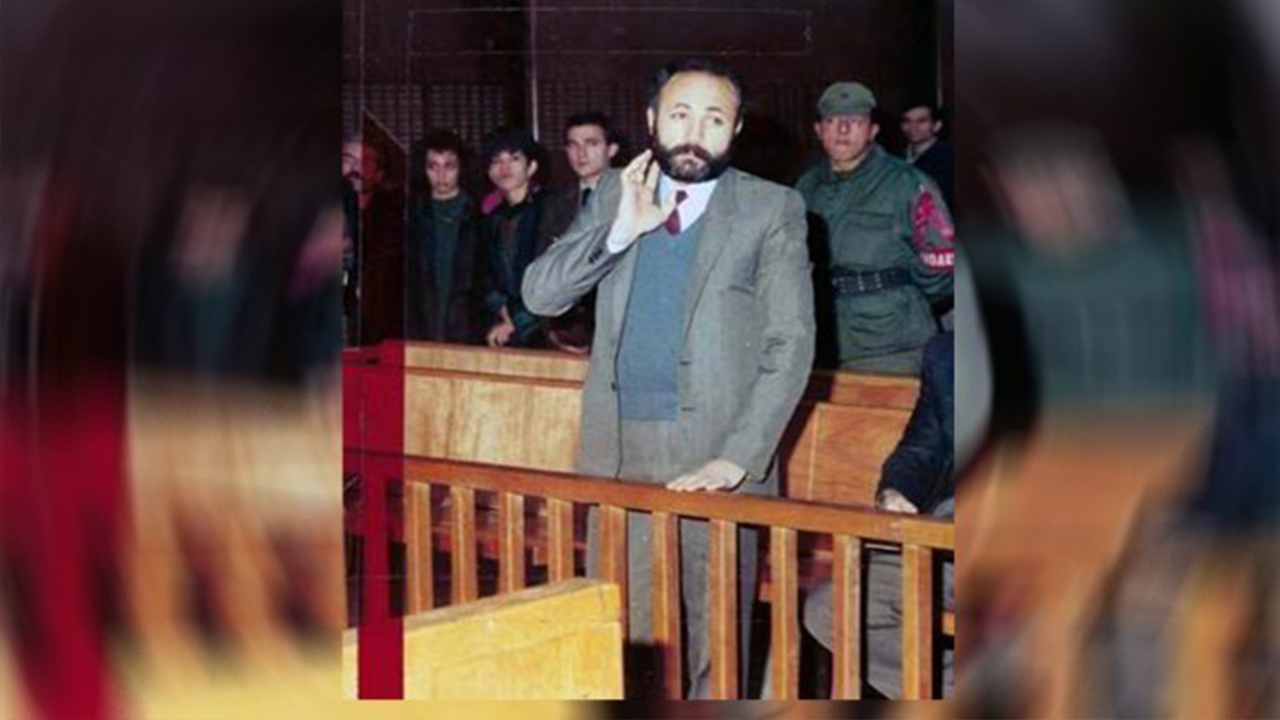Journalists Eylem Akdağ and Müjdat Can wrote about the late Kurdish politician Vedat Aydın’s legacy and how his fight for equality and democracy spread after his death in Turkish army custody.
“The state failed to estimate that Vedat’s legacy would go this far,” the slain politician’s brother Veysi Aydın told the journalists.
Aydın was among the pioneers of the Kurdish political movement. At the time of his death, he was serving as the provincial chair of the Diyarbakır (Amed) branch of the People’s Labour Party (HEP), one of the first political parties founded by Kurds in Turkey.
On 5 July 1991, members of the infamous Gendarmerie Intelligence Organisation (JİTEM) introduced themselves as police officers and detained Aydın from his home. The politician suffered the same fate that later befell thousands more Kurds, when his body was discovered two days later in the neighbouring Elazığ (Mazra) province.
During the 1990s, when Turkey’s conflict with the Kurdistan Workers’ Party (PKK) was at its peak, an estimated 17,000 people lost their lives in unsolved murders. In 2015, the Human Rights Association’s (İHD) Diyarbakır branch announced the discovery of 348 mass graves in Kurdish-majority provinces, with at least 4,201 people buried in them. Many other bodies are suspected to have been disposed of in acid wells near oil processing plants in the region. The exact numbers are not publicly known.
Aydın himself had worked in the founding of İHD Diyarbakır, and was elected to the board in 1990. On 28 October 1990, he was arrested for a speech he gave in Kurdish at the İHD’s general assembly in capital Ankara. He had previously spent four years in prison following the 12 September 1980 military coup.
The price of Aydın’s Kurdish speech was four months in prison. After his release, he was elected the Diyarbakır provincial chair of HEP in June 1991. Aydın did not enjoy the spotlight, and had agreed to the position begrudgingly.
He had been in office for a mere few weeks before his body was discovered under a bridge in Elazığ. His funeral was held on 10 July 1991, with hundreds of thousands of people in attendance. Eight people lost their lives in a police attack on the procession, and dozens of others suffered injuries.
A report by Kutlu Savaş, Deputy Chairman of the Prime Ministry’s Inspection Board who was given the task following the Susurluk Accident of November 1996 that revealed illicit connections between state officials and the criminal world, said Aydın had been “killed by a gang-like group that burrowed itself in the state apparatus”. However, the investigation did not advance.
Shortly before the statute of limitations, in 2011, a JİTEM informer testified that Aydın was killed by JİTEM. An arrest warrant was issued for the rogue agent Mahmut Yıldırım, code name “Yeşil”, who is wanted with an INTERPOL red notice for the murder of at least eight people, but he was not captured.
On 5 July 2021, the case for Aydın’s death was dismissed.
Aydın’s interest in politics started during his university years, when he studied in Diyarbakır to become a Turkish teacher. He joined the Kurdish movement in 1971, and remained an activist until his death, his brother told the reporters.
During his years in the Diyarbakır Prison between 1980 and 1984, Aydın and other inmates developed their activism, stating that the tyranny they suffered under was happening because they were Kurds, and should be resisted as Kurds.
“I am a Kurd, any demands I have for the Kurdish people is my legitimate ideas. I will never voice these ideas illegally. I will pay whatever price they require to be expressed in a legitimate way,” Aydın used to say.
In the speech in Kurdish that landed him in prison again, Aydın spoke of the Kurdish language. “Our language is denied and ignored. I want to express myself in my mother tongue, this is my natural, legitimate human right. I will defend this to the end,” he said.
As he taught Turkish, he kept working to maintain the Kurdish language. “I want to keep this language alive,” he used to say.
“My brother was a problem solver, and great at raising spirits. That is why he was targeted and taken from us,” Veysi Aydın said. Aydın’s brother continued:
“But, Vedat’s legacy has spread to the masses and became part of the people. The state believed that murder was a solution to the Kurdish issue. Vedat marked the beginning, they later tried to eliminate many others like him. They tried to create this climate of fear, but it became clear that it would not be a solution. If Vedat had lived, maybe the state would not be as stuck as it is now regarding the Kurdish issue. He had the talent to provide a viewpoint. His killing was a big mistake.”
“Crimes against Kurds are not random incidents perpetrated by individuals. They are carried out with direct involvement from state officials, and thus they are deliberate, political acts. Courts can never fulfil their duties when it comes to Kurds, or act independently from the state,” Veysi Aydın added. “We do not claim that it was the state that did these things. There are confessions and a large body of evidence to this end. The state does not deny them either.”
Source:MedyaNews
***Show us some LOVE by sharing it!***



